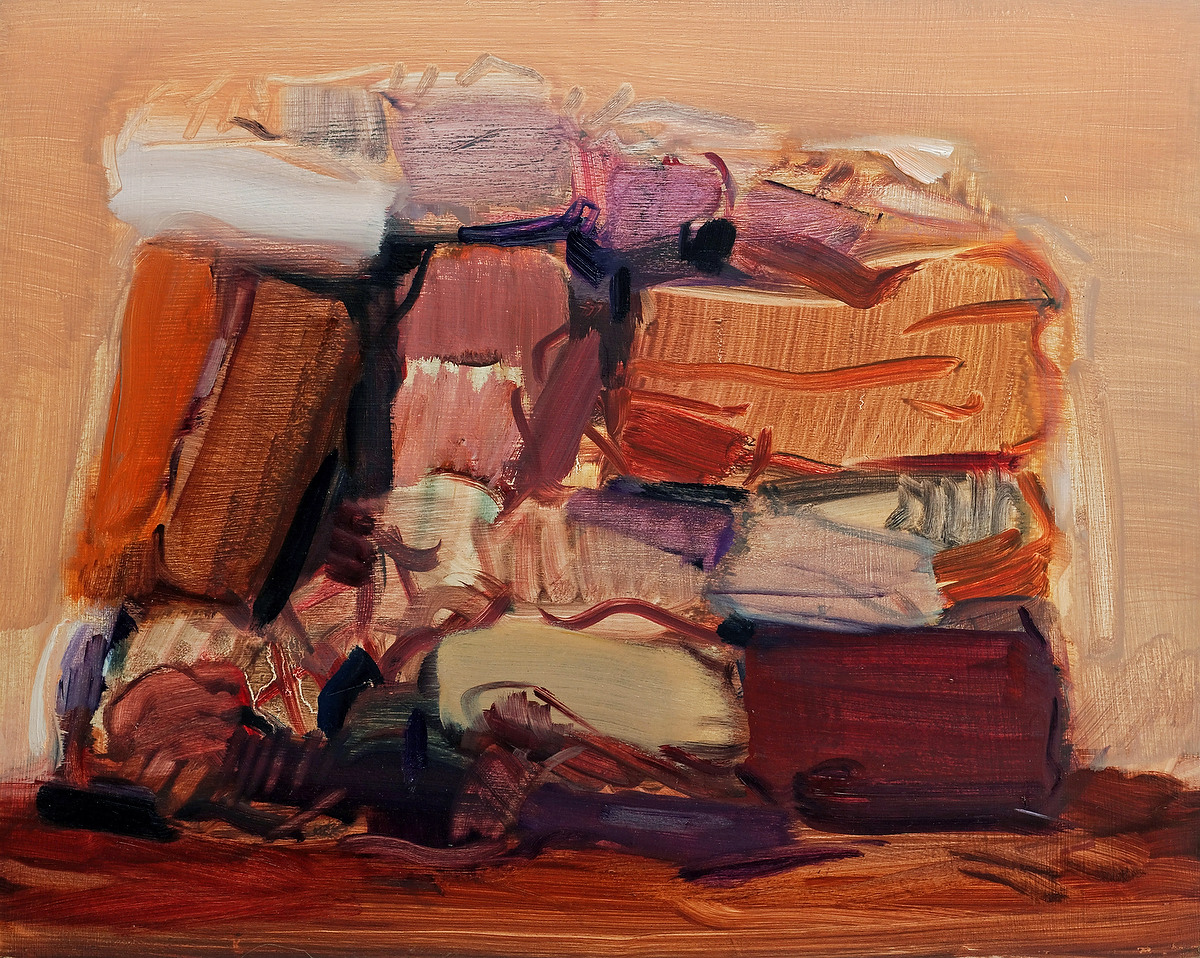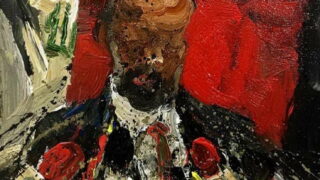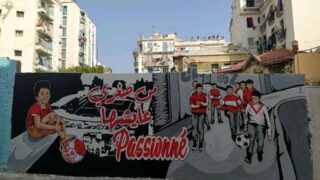
This publication has benefited from the support of the Rosa Luxemburg Foundation. This text may be reproduced in part or in full, provided the source is acknowledged.
“Dear brothers, welcome to Algeria. Long live Africa, united and strong”. Dark humor? Profound cynicism? It is difficult to decrypt the intentions of those who ordered the painting of those slogans on the freshly whitewashed walls of the accommodation center for migrants awaiting their deportation from Algeria. Why would we welcome guests we have decided to force quit a country where they had made their homes?
Those slogans, like a subliminal message failing at subtlety, are in the backgrounds of the pictures of migrants published, a few days ago, in the Algerian daily newspaper “Liberté”, as part of a report entitled “the repatriation of migrants in images”.
Reporters from this Algerian newspaper were authorized to follow and photograph all the steps of a collective deportation of sub-Saharan migrants to Niger: from the capital Algiers in the North to Tamanrasset, the largest urban area in the Algerian Sahara.
So, the “welcome” message is not really subliminal! Though, it is not directed towards the sub-Saharan migrants but to all those who accuse Algeria of mistreating migrants and infringing its international commitments.
Those who accuse abound: the Algerian League of Human Rights, the Algerian journalists, hundreds of Algerians who signed a petition entitled “We are all migrants”, Malian associations for the defense of migrants, Amnesty International, Associated Press, CNN, Reuters and the UN whose high commissioner for human rights publically demanded Algeria, in May 2018, to stop the collective expulsion of migrants.
The Malian consular officials in Algeria announced to the press that on the 5th of October 2017a large-scale campaign was launched by the Algerian security services to arrest migrants. Sub-Saharan migrants who mostly worked on construction sites in all the big cities of the country were hunted, arrested and gathered in centers before being shoved into buses or trucks that took them in the direction of the Saharan borders.
The 2017/2018 campaign against migrants had reached unprecedented proportions in Algeria, it had been preceded by an attempt by the authorities in charge of public transportation to forbid bus and taxi drivers from transporting “migrants of irregular situations”.
On September 27th 2017, the HuffPost Algeria narrated the content of a surreal ministerial briefing note: “the Transportation Directorate of the governorate of Mostaganem informs all bus and taxi drivers of long distance trips between the different countries’ governorates that, from now on, it is strictly forbidden to carry irregular migrants”. The ministerial instruction “ends by threatening to retire transport licenses form the drivers who would fail to comply to this rule, ”writes the website which reveals, in the same article, that in the main bus station of the capital, the reaction of all transportation professionals, drivers, conductors, bureaucrats, is unanimous: they are scandalized, unbelieving: “Now, they want us to ban black people from taking the bus! Why are they doing this? Do they want to exclude foreigners? Why do they want us to remain apart?”, says an Algerian bus driver.
The ministerial note was eventually withdrawn the very next day, after provoking a general outcry on social media in addition to the anger of transporters themselves, but the policemen continued their arrests nevertheless.
In Oran, the Algerian League for the Defense of Human Rights condemned, on November 2017, the confinement of a hundred migrants for three days on trains serving two major cities of the West of the country: Oran and Tlemcen: “a hundred migrants forcibly confined in the carriage of a train connecting Maghnia and Oran. The doors of the carriage were closed from the outside, the food was being passed through the windows at night to the passengers who were being treated like criminals, like social plague-bearers, because of their nationalities and the color of their skins. It is those shameful scenes that the Algerian League for the Defense of Human Rights has witnessed yesterday”, describes another article on the HuffPost which denounces “sweeps” and “racial profiling”.
The Algerian League for the Defense of Human Rights also gave the local press videos that were filmed by the migrants themselves during their transportation, while they were conducted like cattle, inside trucks, to the borders with Niger and Mali, in the middle of the Sahara, in the South of Algeria.
These expulsions and their scandalous brutality soon started to alarmingly impact Algeria’s biggest southern neighbor, Mali, where Algerian Consulates were being attacked, and sometimes ransacked, by groups of angry Malians who protested the ill treatment they – or their relatives -had previously received in Algeria.
In Mali, the violence of the collective expulsions conducted by the Algerian security services fueled anger and an enormous strain that eventually exploded in April 2018 into a diplomatic outrage that Algerian diplomats tried to contain: Abderahamane Sylla, the Minister of Malians Abroad and African Integration announced that Mali recalled the Malian ambassador in Algeria in protest against the mistreatment of Malian citizens in Algeria.
This announcement(duly recorded) and reported by a BBC journalist was indirectly denied the very next day by the Algerian Ministry of Foreign Affairs which clarified that the ambassador of Mali was present in Algeria and that the relations between the two countries were in a really good place.
In fact, never before in the history of Algeria have the relations with a neighboring country as important as Mali gone this bad. But, instead of worrying about the undermining of its popularity among the citizens of this brotherly country, the Algerian officials only presented multiple denials, counter-accusations and “campaigns” against the “western detractors”.
“Algeria has been the subject, for many weeks, of a spiteful campaign orchestrated by some non-governmental organizations falsely accusing it of failing in its international obligations regarding solidarity, welcoming and hospitality to sub-Saharan migrants”, churns out, in may 2018, yet another statement by the Algerian Ministry of foreign affairs which reveals a government’s obsession with “outside instigations aimed at destabilizing Algeria”, inherited from the civil war period of the nineties.
Instead of putting an end to the infernal spiral caused by the violence of the arrests and the racism inherent in the collective expulsions, and rather than giving time to think strategically about a long term plan on the question of refugees and migrants, the Algerian government kept going, like a brainless machine, agitating itself against “the malicious forces trying to tarnish its reputation”.
On the pictures taken by reporter Louiza Ammi form the newspaper “Liberté”, we see the Algerian Red Cross staff getting busy helping, all smiles and full of sympathy, the children of migrants. The doctors and Algerian volunteers are wearing brand new red vests, latex gloves, respiratory masks, as if, unconsciously, they wanted to imitate the images of European rescue workers taking care of the migrants stranded on the northern shores of the Mediterranean, well wrapped in their sanitized suits.
Imitating the Europeans, what for? Algeria “has not become a land of immigration” as the Algerian researcher Ali Bensaad explains, because actually “it has been one for more than half a century” (as he states in an interview given in august 2017 to the daily newspaper “Al Watan”). The sociologist adds: “During the liberation war, of a population of around 9 million inhabitants, 200 000 Algerian refugees were officially recorded in the UN camps in Tunisia and Morocco, this is without taking into account those who migrated on their own depending on their personal capabilities or family connections in Morocco and Tunisia. While the border troops were not always respectful of the authorities of those countries, the refugees were not always “angels”, exactly as we would say nowadays of the sub-Saharan migrants. In comparison, we are talking about 90 000 sub-Saharans” concluding that “the humanitarian dimension (of the question of the sub-Saharan migrants in Algeria) is a fundamental component of our national history”.
While Algerian officials chose to shrivel up aggressively invoking security-related alibis, like Donald Trump does when he closes the door on Syrian and Iraqi refugees pretexting a fear of terrorism, it is remarkable to note that apart from the authorities, more and more Algerians consider that sub-Saharans choosing to reside in Algeria are a formidable asset for the country.
For example, building contractors are among those who publically demand from the authorities to stop chasing migrants and ask the police to give them residence permits: “We have gone to the police station numerous times to ask them to let the workers go”, says a works foreman in an investigation by the HuffPost Algeria on the working conditions of sub-Saharans in the construction industry.
“Us, contractors and foremen, would like their situation to be regularized. It would allow us to declare them instead of employing them illegally, and they would be able to lodge complaints against the “hogra” (contempt abuses)”, sums up Issam, an Algerian building contractor.
Issam is not alone in his request. Small businesses led by Algerian-Malians, , mostly women, spread in the city of Algiers and the products they sell, from textiles to jewelry and furniture are very popular, while a group of Algerian-Malian feminists has launched a “culinary catering” initiative responding to the demand for Malian and West-African dishes and food. Such signs of the Algerian – sub-Saharan mix which have existed for a long time in the cities of the south of Algeria have started to become a reality in the North of the country and its coastal cities as well.
Algerian officials, headed by the Prime Minister Ahmed Ouyahia, himself a relic of the sinister nineties, have neither the willingness nor the capacity to see and acknowledge those signs. It will probably be too late when they finally understand that the ones whom they are cynically “welcoming in Algeria” are, already, part of Algeria.
The content of this publication is the sole responsibility of Assafir Al-Arabi and Rosa Luxemburg Foundation cannot accept any liability for it.
Translated from Arabic by Fourate Chahal Rekaby
Published in Assafir Al-Arabi on 07/08/2018




